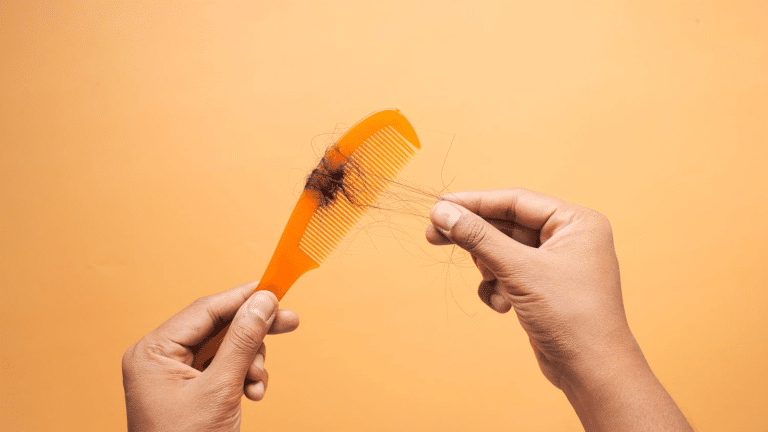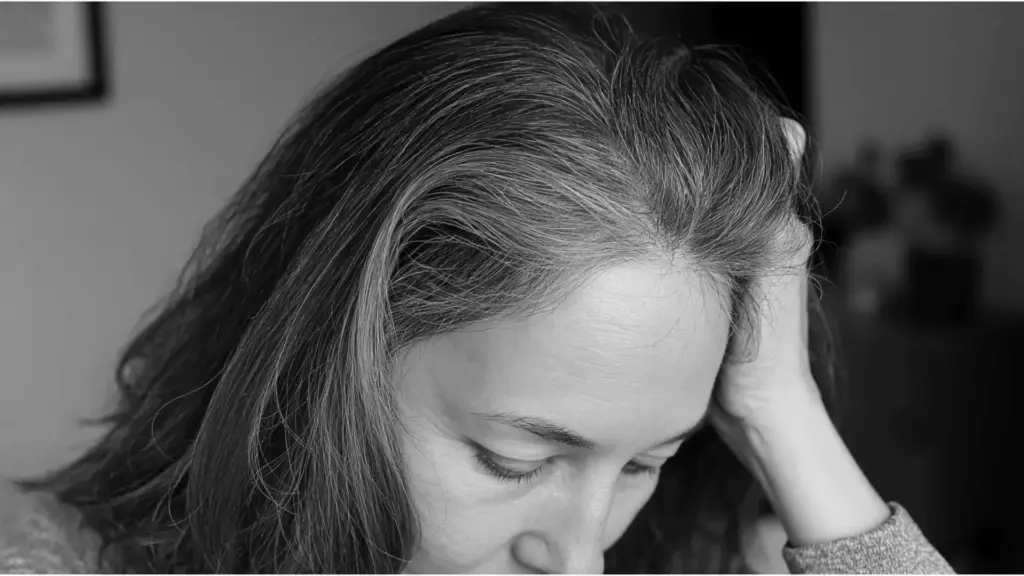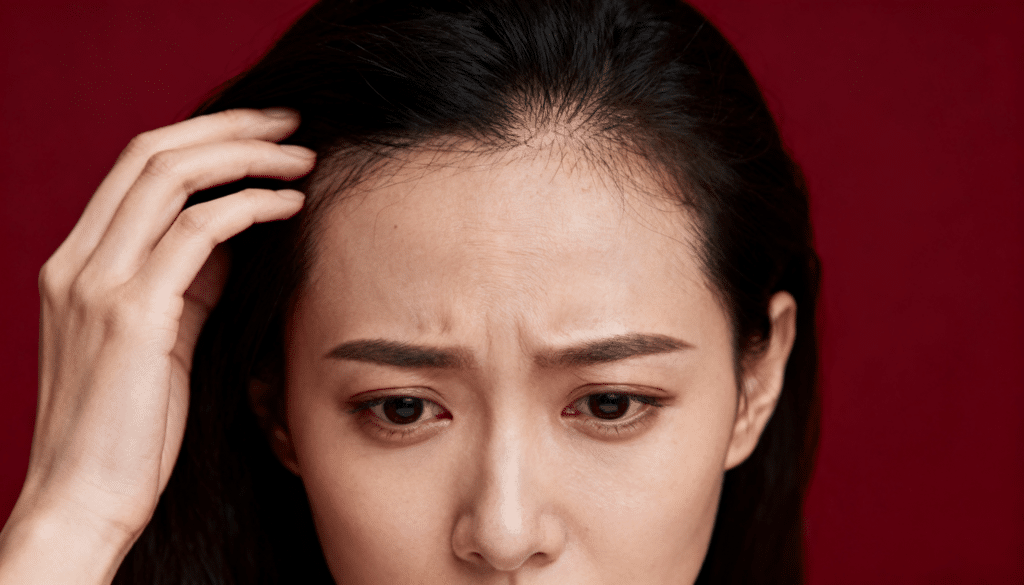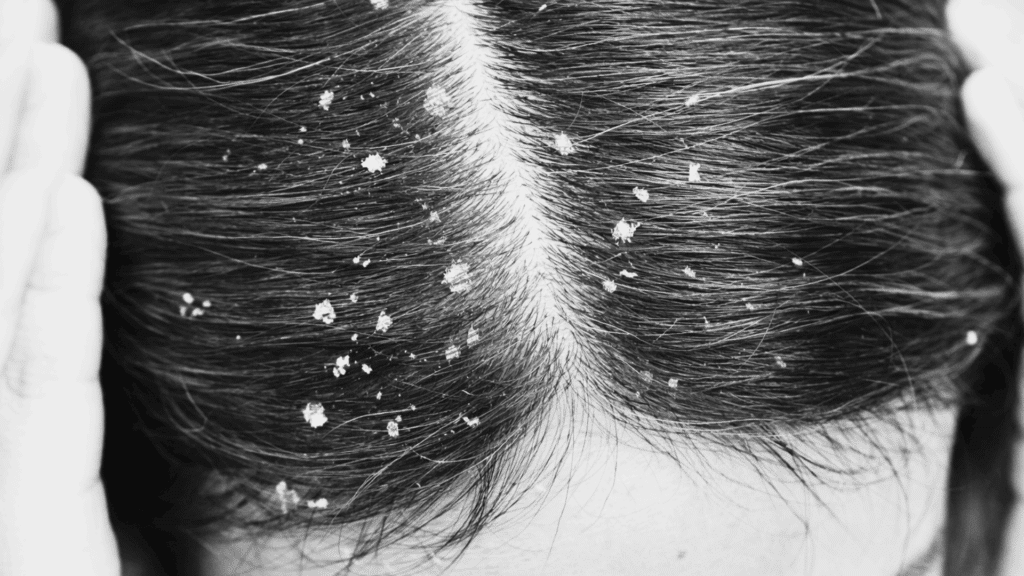Notice your hair thinning since starting phentermine? You’re not alone, and it’s not in your head.
Many people experience phentermine hair loss, but here’s what most don’t know – the medication doesn’t directly attack your hair follicles.
What if I told you there are simple ways to protect your hair while still reaching your weight loss goals? You can keep both your progress and your confidence intact.
Let’s find practical strategies that actually work to manage your hair health during phentermine treatment.
What is Phentermine?
Phentermine is a prescription medication used for weight loss. Doctors prescribe phentermine for adults with a BMI indicating obesity or overweight. They also prescribe it for people with health problems like high blood pressure, high cholesterol, or diabetes.
How does this work? Medicine works as an appetite suppressant. It affects your central nervous system. The medication increases certain brain chemicals like norepinephrine. These chemicals tell your brain to feel less hungry.
Think of it as a helper that turns down your hunger signals. You feel full faster when you eat. You also feel satisfied with smaller portions. This makes weight loss more manageable.
Is Phentermine Hair Loss Real?
It’s not entirely safe from causing hair-related problems.
Phentermine doesn’t attack your hair follicles directly. But it creates conditions that can lead to hair loss. The medication suppresses your appetite, which may cause nutritional gaps.
You might not get enough protein, iron, or vitamins that your hair needs. It also causes rapid weight loss. Fast weight loss stresses your body and can trigger temporary hair shedding called telogen effluvium.
Hormonal changes and increased stress levels from the medication can also affect hair growth. Most hair loss from phentermine is temporary and grows back after treatment ends.
Phentermine Side Effects
Common Side Effects: Dry mouth, Trouble sleeping, Headache, Dizziness, Constipation, feeling restless, Bad taste in the mouth, Fast heartbeat, High blood pressure, Serious Side Effects.
Serious Side Effects: Chest pain, Hard to breathe, Swollen feet, Heart problems, Allergic reactions, Mood changes, Skin rash, Hair loss.
Safe Duration for Phentermine Treatment
The FDA approves phentermine for short-term use only.
Most people take it for up to 12 weeks. Some doctors might prescribe it for a longer period in special cases.
Most patients use phentermine for 3 to 12 weeks. They combine it with lifestyle changes. This includes eating fewer calories and exercising more. Your doctor decides the right dose for you.
How Phentermine May Be the Reason for Hair Loss

Phentermine is not known to directly cause hair loss. But there are several ways it may contribute to this problem for some users:
Less Appetite Means Less Nutrition
Phentermine makes you much less hungry. This can lead to eating less of the nutrients your hair needs.
Your hair requires protein, iron, zinc, and vitamins to stay healthy. When you don’t get enough nutrition, your hair may shed more and become thinner. This happens especially during weight loss.
Fast Weight Loss Creates Body Stress
Phentermine helps people lose weight quickly. But losing weight fast puts physical stress on your body. This stress can trigger telogen effluvium. This is a temporary type of hair loss.
More hair enters the resting phase and then falls out. This happens with any rapid weight loss, not just with phentermine.
Hormones Get Out of Balance
Losing weight changes your hormones. Taking stimulant medications like phentermine can also disrupt hormone balance. Changes in estrogen, thyroid hormones, and stress hormones like cortisol affect how your hair grows.
This can lead to more shedding.
Stress Levels Go Up
Making big lifestyle changes can be stressful. Dealing with side effects from stimulant drugs can also cause stress. Higher stress increases cortisol in your body. Too much cortisol has been linked to hair loss.
Not Everyone Has This Problem
Not all people using phentermine will lose hair. Several things affect whether you might have this issue:
- Your genetics.
- How well you eat normally.
- Your overall health.
Never increase your dose or take more pills than prescribed. This can be dangerous.
Is Reversing Phentermine Hair Loss Possible
Phentermine-related hair loss is typically not permanent. In most cases, people can reverse it by fixing the root causes.
These include rapid weight loss, missing nutrients, and high stress levels. Taking care of scalp health, eating better, and supporting hair regrowth can help restore lost hair over time.
Managing the side effects of Phentermine is possible if the diet is managed correctly. The following are some simple changes to help with the side effects:
- Eat potassium-rich foods like bananas, spinach, and avocados if you get muscle cramps or feel weak.
- Chew sugar-free gum or sip water often to help with dry mouth.
- Eat smaller meals more frequently instead of large meals to ease any stomach issues.
Tips to Restore Hair Health After Phentermine
Restoring hair after phentermine requires a targeted approach that addresses the root causes.
These proven strategies focus on nutrition, scalp care, stress reduction, and medical treatments that support healthy regrowth.
- Prioritize Your Nutrition: Focus on foods rich in protein, iron, biotin, vitamin D, and omega-3 fatty acids to support hair regrowth.
- Scalp Care: Use gentle shampoos (preferably sulfate-free) and consider scalp massages with oils like rosemary or castor oil, which may help improve follicle health.
- Reduce Stress: Stress management practices like yoga, deep breathing, and improved sleep can lower cortisol and boost hair recovery.
- Consider Treatments: Minoxidil (Rogaine), low-level laser therapy, and professional hair restoration treatments may also help.
Lifestyle Changes to Minimize the Drug Effect
Here are key lifestyle changes that can help minimize potential side effects and maximize the benefits of phentermine:
1. Stay well-hydrated: Phentermine can cause dry mouth and speed up your metabolism. Drink plenty of water throughout the day to prevent headaches and support your kidneys.
2. Eat regular, balanced meals: Even when you don’t feel hungry. Choose nutrient-rich foods like lean proteins, vegetables, fruits, and whole grains. Don’t skip meals completely – this can cause blood sugar drops and worsen side effects.
3. Cut back on caffeine: Since phentermine is already a stimulant, extra caffeine from coffee, tea, or energy drinks can make you feel more jittery, anxious, or unable to sleep.
4. Take phentermine early in the morning: (before breakfast or within 2 hours of waking up) to avoid sleep problems later.
5. Stick to good sleep habits: Go to bed and wake up at the same time each day. Create a calming bedtime routine and put away phones or tablets before sleep to help counteract any sleep difficulties.
6. Start slowly with exercise: If you’re not used to it, since phentermine can make your heart beat faster. Try walking, swimming, or yoga first.
7. Pay attention to your heart rate: When exercising, especially at first, since the medication affects how your heart responds to activity.
The Bottom Line
Phentermine hair loss is a real concern, but it doesn’t have to derail your weight loss goals.
As we’ve seen, the medication doesn’t directly cause hair loss. Instead, rapid weight loss and nutritional gaps create the problem.
Most hair loss from phentermine is temporary. Your hair usually grows back when you maintain proper nutrition and your weight stabilizes.
Ready to protect your hair while losing weight? Start by eating enough protein and taking a good multivitamin. Talk to your doctor about monitoring your nutrient levels during treatment.
















